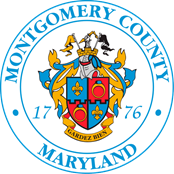Montgomery County, Maryland Información en español

Press Releases - County Council
Councilmembers Mink, Jawando, Sayles Hold Press Conference on Bill 4-24 Creating the “Community Reinvestment and Repair Fund Commission” to Allocate Cannabis Tax Revenue Toward Reparation Programming for Communities Harmed by Cannabis Prohibition
For Immediate Release: Tuesday, July 16, 2024
From the Office of Councilmembers Kristin Mink, Will Jawando and Laurie-Anne Sayles
On Tuesday, the Montgomery County Council unanimously passed Bill 4-24, “Community Reinvestment and Repair Fund Commission – Established.” Lead sponsors Councilmembers Kristin Mink (District 5), Will Jawando (At-Large) and Laurie-Anne Sayles (At-Large) held a press conference with community advocates and service providers to discuss the significance of the bill’s passage. The legislation creates a commission of 13 voting members drawn from impacted communities to advise on the allocation of tax revenue from the sale of cannabis.
Under State law, 35 percent of cannabis excise tax revenues are reserved for local jurisdictions to invest in community-based initiatives and programming benefitting communities disproportionately impacted by decades of cannabis prohibition. Counties must determine how to disburse the funds they are allocated.
“Just over a year ago, cannabis was legalized for adult use and sale in Maryland. This new industry is already delivering tremendous economic benefits, but we must recognize that the same actions that are now generating wealth for business owners and the state overall were used for decades to criminalize and tear apart communities, disproportionately Black and Brown communities,” said Councilmember Mink. “This legislation puts impacted people in the driver’s seat as we begin to repair that harm.”
“Thank you, Councilmember Mink and your team, for leading this initiative. I proudly signed on as a lead sponsor to Bill 4-24 because I understand the importance of investing in communities most affected by the ‘War on Drugs,’” said Councilmember Sayles. “I pledge to help recruit a diverse coalition of members to serve on this commission to ensure the most effective reinvestments in our communities.”
“With this new law, Montgomery County is setting a precedent for how local governments can address the lingering impacts of the disastrous ‘War on Drugs,’” said Councilmember Jawando. “We're showing that it is possible to move toward healing and community-driven solutions. This is a model that I hope will inspire similar actions across our state and nation.”
“We applaud Councilmember Mink for enthusiastically working with us to get this done. The so-called ‘War on Drugs’ was, unfortunately, mostly a war on Black people and other communities of color,” said Hashim Jabar, co-executive director at Racial Justice NOW. “This legislation is just one positive outcome to begin the process of righting the wrongs of the past laws, practices and policies that criminalized large portions of our communities, particularly Black men."
“Interfaith Works endorses Bill 4-24, citing the proposed commission's focus on supporting community-based initiatives through grants that will serve communities most affected by poverty,” said Courtney Hall, CEO of Interfaith Works. Hall highlighted the significant increase in demand for services among vulnerable populations and the importance of representation on the commission from communities most impacted by disproportionate cannabis prohibition enforcement.
"The dangerous ‘War on Drugs’ has facilitated the over-policing and mass incarceration of Black and Brown people for decades,” said Yanet Amanuel, public policy director of the American Civil Liberties Union of Maryland (ACLU of Maryland). “The collateral consequences of this targeted over-criminalization have affected not only the mental, financial and emotional well-being of those targeted but also their families and community. The establishment of the Community Repair and Reinvestment Fund provides an opportunity to redirect state tax revenue from the new recreational market to communities most directly impacted by the ‘War on Drugs’ through a reparations framework."
The legislation was cosponsored upon introduction by Council President Andrew Friedson, Vice President Kate Stewart, and Councilmembers Sidney Katz, Natali Fani-González, Gabe Albornoz and Evan Glass.
The County fund is expected to receive approximately $1 million or more in its first year based upon data from the first three quarters of recreational cannabis sales. Bill 4-24 adopts a similar community-based advisory body model as Baltimore City (via Bill 23-0353) and Prince George’s County (via CB-088-2023).
A full recording of the press conference is available online.
# # #
Release ID: 24-268Media Contact: Chris Wilhelm 301-706-7843
Categories: Kristin Mink, Laurie-Anne Sayles, Will Jawando